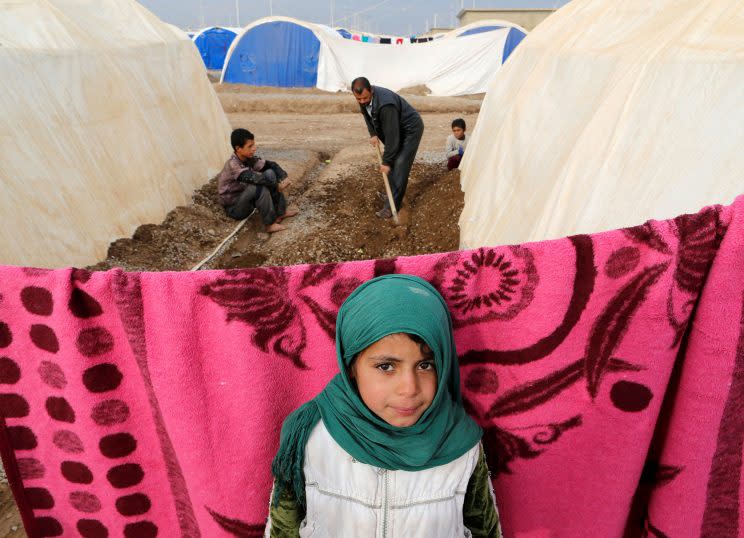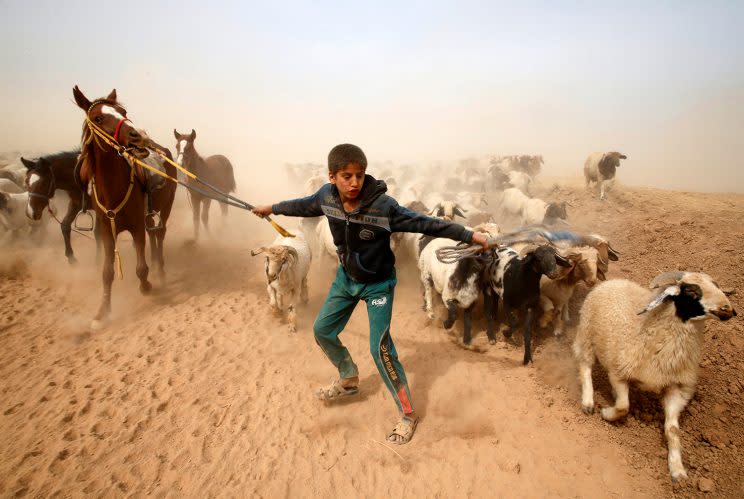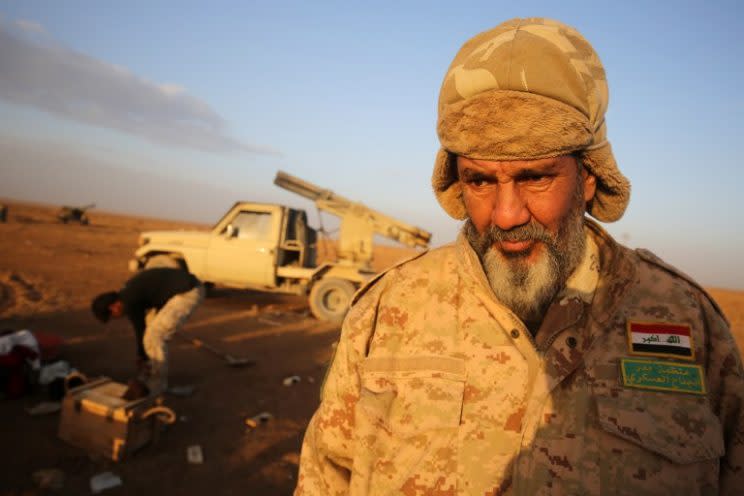What happens after Mosul is reclaimed?

Part 5: As the U.S.-led coalition continues its push to drive ISIS from Mosul, Yahoo Canada News has launched a five-part series about the battle to retake the Iraqi city gripped by terror.
It’s two months into the battle to reclaim Iraq’s second-largest city from the Islamic State and some 85,000 citizens are displaced.
Experts say even as Iraqi coalition forces get closer to gaining control of the city there are major unanswered questions: Who will govern Mosul? What is the strategy for dealing with the terrorism that inevitably follows? How do leaders manage the unease Sunni and Shiia and Christians feel for one another?
“The military operation is way ahead of the political dialogue and it really needs to start now,” said Bayan Sami Abdul Rahman, the Kurdistan Regional Government (KRG) representative to the United States, who lobbies for her government’s political, economic, cultural, and security concerns in Washington D.C.
ALSO READ: Military aims to stop ISIL’s ‘spillage’ outside of Iraq, Syria when Mosul falls
After Mosul is taken back from ISIS there will be issues of terrorism and counter-terrorism, she said which would mark the next phase in the struggle to stabilize Iraq. As a result of the ongoing conflict, more than 3.3 million Iraqis are already displaced throughout the country; one million of which are in the Kurdish Region of Iraq (KRI) making the issue of governance crucial. “How do we get them home when they don’t feel secure enough to go home and aren’t sure who will protect them?” she noted.
The KRG would like the international community to participate in post-war talks, she said, not necessarily decision makers but facilitators. “As much as Canada, the U.S. and Europe would want to just get out of Iraq and never go back, the reality is that they will go back unless this is solved. We still need our coalition partners to stay engaged.”
Rahman said Canada’s relationship with the KRG is significant because it has been proactive since the start of the conflict and it’s one of the leading partners in the U.S.-led coalition. “We are most grateful to Canada and we want that relationship to continue beyond Mosul,” she said.
In July Canada pledged $158-million in aid to Iraq; this is part of the government’s overall three-year, $1.6-billion humanitarian and stabilization commitment to support Iraq in its fight against ISIS. The Trudeau government is also working with international partners and pledged an additional $200-million to the World Bank as a loan to help the Iraqi government with economic reform.
Canadian forces have worked closely with peshmerga to train and equip them to international standards, Rahman said, explaining how the Kurdish fighters were historically excluded from Iraq’s defense budget.

Now the fighters are receiving equipment, training and support in the form of airstrikes, intelligence and operational advice from the coalition. “That’s very important for us and arguably vital to the fight against ISIS,” Rahman said.
Guns and steel
To continue that fight KRG hopes for transparency when it comes to receiving weapons, Rahman said. The Kurds have often complained of arms shortages and delays. Rahman said she doesn’t know if the hold-up occurs in Baghdad or the U.S. (which coordinates the international coalition response) so the KRG is lobbying for greater transparency to understand where the bottlenecks are.

At present they are required to update the coalition team in Erbil every two weeks on the amount of ammunition used and on what front. It’s only then that they can put in their replenishment request.
Then they wait.
“We say we are running out of x-type of rockets and the U.S. sends out a message to coalition partners. Maybe they all come back and say ‘Well we’ve run out of them too.’ Or maybe they say, ‘you know what? We’ve given those pesky Kurds so many of these we’ve had enough.’
“We don’t know. We just don’t know. Absolutely it’s very frustrating,” Rahman said. “This is an important issue to resolve because we are about to liberate Mosul and we will continue to need weapons to fight terrorism.”
A common enemy
During the Mosul battle, peshmerga and Iraqi coalition forces have collaborated extensively said Mike Rouleau, Commander of Canadian Special Forces. In a technical briefing in Ottawa at the end of November he told reporters: “You’re talking about moving brigades and divisions through Kurdish lines. That demands very high levels of complementarity. So what we are seeing from the ground is not friction is not tension. It’s collaboration in pursuit of a common enemy.”
Rahman concurs and believes the goodwill generated through the unprecedented level of military cooperation between Erbil and Baghdad will have a residual effect. And once the Mosul operations conclude, when politicians sit down to discuss issues of governance, justice and accountability, she hopes all sides will maintain that optimistic attitude.
“We all need to sit around the table, Shia, Sunni, Kurds, the minorities who have been subjected to genocide. Everybody needs to sit around the table to decide the future of Mosul, Nineneveh and Iraq,” Rahman said.
There have already been several high-level talks between KRI President Masoud Barzani and Iraqi Prime Minister Haider al-Abadi to discuss unresolved topics between Baghdad and Kurdistan — like oil, governance, and security.
But Belkis Wille, senior Iraq researcher for Human Rights Watch, said after the Mosul offensive the government must put into place concrete transitional mechanisms. Because there have been abuses on all sides an accurate historical narrative is crucial. Telling the truth is crucial. “Healing processes are needed between the different communities that are living side-by-side now and feel like one betrayed the other,” she said.
In addition: “There should be serious judicial processes against ISIS fighters for abuses they committed instead of just locking them away or chopping their heads off,” she said, adding after a pause, “I don’t have high hopes that any of that will happen.”



